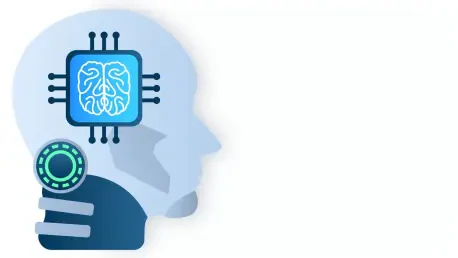In recent years, the landscape of cybersecurity has been significantly reshaped by advancements in artificial intelligence, marking a pivotal moment in the field’s evolution. Notably, the integration of AI into penetration testing practices via tools like Kali GPT has elevated the standards of security analysis and testing. This transformation offers a more efficient, precise, and user-friendly experience for professionals engaged in assessing vulnerabilities and strengthening network defenses. With the ever-growing complexity of cyber threats, AI-driven tools provide a much-needed edge, equipping both seasoned experts and novices with capabilities that push the boundaries of conventional cybersecurity approaches.
Harnessing AI in Penetration Testing
The Role of Kali GPT in Modern Cybersecurity
Kali GPT emerges as a transformative tool in cybersecurity, leveraging the GPT-4 architecture to deliver unparalleled assistance in penetration testing. As part of the widely respected Kali Linux suite, known for its robust security assessment tools, this AI-driven assistant provides a new dimension of technological aptitude. Its integration signifies a leap forward in the development of security frameworks, enabling users not only to efficiently identify and rectify vulnerabilities but also to comprehend the intricacies of potential threats with greater clarity.
By offering real-time, context-aware insights, Kali GPT reduces the cognitive load traditionally associated with extensive manual testing. It facilitates streamlined operations by aiding in the generation of payloads, interpreting complex tool outputs, and resolving configuration errors. This capacity to provide immediate, situation-specific guidance enhances user efficacy, substantially reducing reliance on external documentation and resources. Enterprises and educational bodies across the globe are increasingly adopting this tool, recognizing its potential to democratize access to advanced cybersecurity methodologies.
Democratizing Cybersecurity Through AI
The introduction of AI technologies such as Kali GPT into penetration testing illustrates a broader trend of democratizing cybersecurity capabilities. The adaptive nature of Kali GPT makes it uniquely positioned to address the diverse needs of a wide range of users, from beginners to seasoned security professionals. For novices, it presents step-by-step guidance, succinctly explaining complex concepts and procedures. Conversely, for experienced users, it delivers advanced insights, optimizing existing security protocols and strategies.
This adaptability not only fosters a more inclusive environment for learning and professional development but also expedites practical implementation scenarios. By mitigating the need for prolonged data sifting and trial-and-error experimentation, Kali GPT enhances productivity. Further, it bridges the gap in cybersecurity expertise, arming new professionals with the knowledge and tools required to understand and tackle rising digital threats more effectively. The educational value of such a tool cannot be overstated, as it empowers users to engage proactively with cybersecurity dynamics, ultimately strengthening the industry’s foundational skills.
Integration and Implications
Seamless Incorporation into the Kali Linux Ecosystem
The seamless integration of Kali GPT within the Kali Linux ecosystem illustrates a milestone in enhancing usability and capabilities for penetration testing. Kali Linux, boasting over 600 specialized security tools, now facilitates an all-encompassing cyber defense suite with the addition of AI functionality. By remaining within a coherent command-line interface, users benefit from uninterrupted workflow continuity, receiving targeted feedback and insights without transitioning to different contexts or platforms.
Moreover, this integration paves the way for innovative methodologies in security assessment procedures. By harmonizing AI’s computing power with already established Debian-based tools like Metasploit and Burp Suite, Kali GPT allows users to not only optimize existing processes but also push forward the boundaries of automated testing and real-time threat analysis. The capacity to amalgamate tools and insights within a single operational framework exemplifies forward-thinking design, significantly enhancing overall efficiency and user satisfaction in the cybersecurity field.
Ethical Considerations and Responsible Use
As AI increasingly becomes a lynchpin in cybersecurity solutions, ethical use remains paramount to its sustainable integration. The developers of Kali GPT have embedded mechanisms to ensure that its capabilities are harnessed ethically and responsibly, incorporating permission-based recommendations and contextual safeguards. By promoting responsible and transparent operations, these features emphasize the importance of ethical hacking, reinforcing the principle that all penetration testing should strictly adhere to authorized, white-hat objectives.
Maintaining the balance between technological advancements and human oversight is crucial, particularly as AI continues to make significant inroads into cybersecurity domains. While AI tools like Kali GPT markedly accelerate processes, human judgment remains essential to interpret and act upon generated insights with a discerning lens. The hybrid approach integrating human expertise with AI’s analytical strengths lies at the heart of fostering a secure and ethical cybersecurity ecosystem. This balance ensures the responsible implementation and ongoing development of AI-driven security frameworks.
Educational and Corporate Impacts
Elevating Cybersecurity Education
The educational sector stands to benefit profoundly from the integration of AI tools such as Kali GPT into cybersecurity training programs. By simplifying typically arduous tasks, these tools facilitate a more engaging and interactive learning experience. As they provide immediate, tangible insights, students and emerging professionals can gain vital hands-on experience, which bridges theoretical knowledge with practical application. This experiential learning approach ensures that individuals not only comprehend cybersecurity concepts but can apply them effectively in real-world scenarios.
By embedding AI-driven tools within academic curricula, educational institutions can offer a more comprehensive and impactful training ground for those entering the cybersecurity field. These tools prepare students to address dynamic and evolving challenges, building a workforce that is adept at leveraging both foundational knowledge and cutting-edge technologies. The increased proficiency and confidence that come with this training are pivotal as society leans on these new professionals to protect and defend critical digital infrastructures against an ever-increasing array of threats.
Real-World Applications in Corporate Environments
Incorporating AI-driven penetration testing solutions like Kali GPT into corporate environments yields noticeable improvements in security operations and risk management. By automating routine and repetitive tasks, these tools free up valuable human resources, allowing cybersecurity teams to concentrate on strategic threat analysis and management. This shift not only reduces operational overhead but also enhances the depth and frequency of penetration tests, fortifying organizational defenses against sophisticated attacks.
Corporations find significant value in the enhanced testing cycle times and expanded coverage afforded by AI-driven tools. As they scale infrastructure and diversify operations, maintaining an agile yet robust security posture becomes imperative. With features designed to accelerate testing workflows and provide comprehensive, actionable insights, Kali GPT supports organizations in proactively identifying vulnerabilities and addressing them effectively. This strategic advantage equips businesses to better anticipate and mitigate risks, safeguarding their assets and reputations in the ever-evolving digital landscape.
Innovating Digital Defense Strategies
The realm of cybersecurity has undergone substantial changes in recent times, largely due to the integration of artificial intelligence, which has ushered in a new era in the field’s progression. AI’s incorporation into penetration testing, especially with tools like Kali GPT, has transformed security analysis and evaluation, significantly raising standards. These innovations deliver a more efficient, precise, and accessible experience for those tasked with uncovering vulnerabilities and bolstering network defenses. With cyber threats becoming increasingly complex, AI-powered tools offer a crucial advantage, equipping both veteran professionals and beginners with capabilities that expand the traditional boundaries of cybersecurity. The introduction of these AI tools enables faster identification of threats, anticipates potential breaches, and automates routine security tasks, thus allowing human experts to focus more on strategic issues. This technological evolution doesn’t just enhance defense mechanisms but also sets the stage for more proactive and adaptive cybersecurity strategies.









